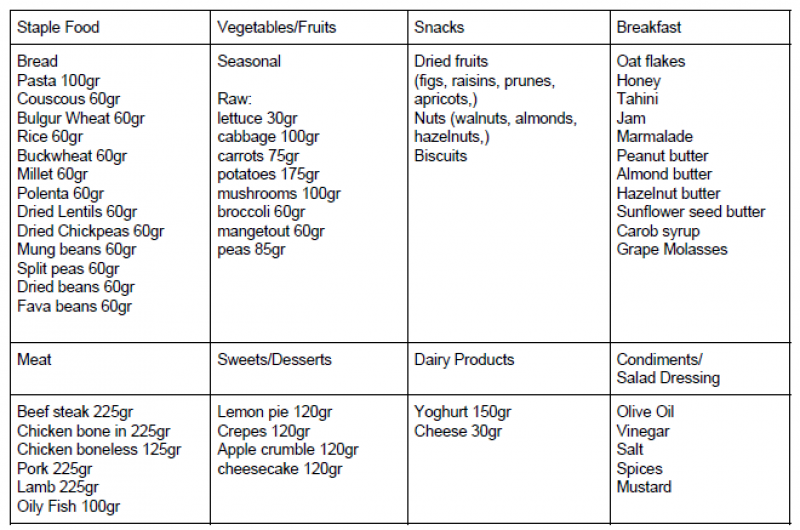Table of Contents
Food / Sustenance for an Heterotopia Tour
A low-impact lifestyle
A Trip to Heterotopies motivates us to experience an eco-friendly lifestyle. To achieve this objective, during the first days of the trip we collectively set up a common board of values that help us adopt some practices regarding accommodation, food, transport, energy consumption, etc.
That is to say, to limit our environmental impact (footprint) in terms of accomodation, we settle an eco-camp on the host organisation’s ground and try to reduce as much as possible our water consumption (by installing dry toilets, using ash or plants for dishwashing), our electric supply (by using solar showers) and our wastes (by buying our food in bulk into our own packaging).
Towards a high quality raw material
As far as food is concerned, we strongly encourage hosts and participants to buy local, organic, non-gmo, seasonal, unpackaged food and, if possible, originating from a heirloom variety. A worth taking challenge is to find (incr)edible wild plants from the local flora around the campsite (always keeping an eye on preserving biodiversity). If this is not that easy, we mainly pick what we need from either local organic/biodynamic farmers that we trust or we are introduced by our partners, that share the same values about food sovereignty and agroecology. An alternative, in case we cannot manage to find any farmer nearby, remains always for open air markets and cooperative shops from the surroundings.
Food Supplies
To allow hosts and participants reach the goal of a rich in nutrients food that meets everyone’s needs, each organising team has to provide information about the various possibilities. All organising teams and participants need to be aware of the daily budget, budget constraints and quantities to take into account while purchasing on markets. Moreover, during the trip, hosts and participants are encouraged to reduce meat consumption. Organising teams and hosts are also invited to produce in advance their own biscuits, jams, jellies, chutneys and preserves as much as their time and creativity allows, to promote self sufficiency.
Food stock
Life would be a whole lot easier if we didn't always cook too much or too little, so we break it down for us.
The board below offers some guidelines for purchasing and menu planning. We know that the amount of food someone eats will vary by age, gender and personal preference so keep in mind that these are estimates only, and in general, we say err on the side of cooking too much: you can't go wrong with having some leftovers around! Grams listed in the table below are per person.
Organising Daily Cooking
The cooking of the food in every Heterotopia trip is a basic step for the success of it. Taking into consideration that there are 3 meals per day (breakfast, lunch, dinner) for a group of approximately 30 people it makes good sense that each cooking team needs a good preparation to succeed their goals.
Depending on the trip and the needs of participants the cooking team can change either per day or per meal. Bearing in mind the abundant daily program filled with various activities/workshops, we assume that if the cooking team is the same for the whole day people will lose all workshops and the discussions. A good alternative is having one cooking team for each one of the 3 meals (breakfast, lunch, dinner).
A nice option for the selection of the team is that everyone is free to write her/his/its name in the daily program board (for more info on that see article for task assignement) or to discuss about it in a mini assembly that can take place every night after dinner to ensure there is enough people in each cooking team.
Having a food supply team which has already bought the ingredients for every meal, it becomes even easier for the cooking team to either improvise on a recipe or follow an existing one for a tasteful meal.
Regarding breakfast, things are usually much easier. As the day is starting around 7 - 7:30am cooking team needs to be already up to prepare hot beverages, i.e. tea and coffee, by boiling water and pouring it into suitable containers. From the first days that participants get to know each other they will estimate and inform others on the exact quantity (that is: 2 litres of coffee, 1 for tea etc. Breakfast might consist of fruits, bread, honey, tahini, marmalade, yoghurt, omelet.
Concerning lunch, cooking team should be informed of the number of people, their diet preferences (vegan, vegetarian, allergies), and the menu of the previous days before starting putting ingredients together. Food combination for nutrients absorption and adequate calorie/protein/carbo/etc intake is also central in the procedure. Sweets are always welcome.
For dinner, it's good to have a look on what’s left from lunch so there is no waste. Otherwise, a colourful, light and newly imagined and created recipe will please everyone in the common table.
Bon appetit!
